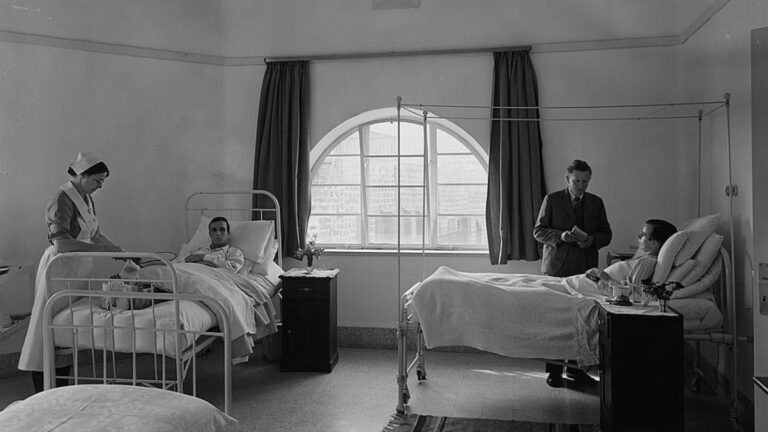We are in the final countdown to the star-studded 2019 Eurovision Song Contest, to be held in Tel Aviv on May 14, 16 and 18.
Now in its 64th year, Eurovision is the international song competition held primarily, though not
exclusively, among European Broadcasting Union (EBU) member countries. The countries whose representative wins the contest is then the designated Eurovision host for the following year.
Eurovision occasionally serves as a springboard to international pop music success. More importantly, for Israelis, participation is a symbol of acceptance into the European sphere. Israel, as an EBU member, made its Eurovision debut in 1973, represented by singer Ilanit with the song “Ey Sham.”
Actually, this wasn’t the first time that an Israeli singer had appeared in Eurovision. In 1963, Safed-born Esther Ofarim, who was forging a European career at that time, represented Switzerland. After a close race, Ofarim’s song, “T’en va pas” came in second.
https://youtu.be/kDYMzyREGCI
Eurovision rules dictate the songs must be previously unreleased and limited to three minutes in length. Originally, competitors were required to sing in one of their own national languages but this rule wasn’t always enforced and since 1999 no such restriction has existed.
It made sense, nonetheless, for songwriters to incorporate a catch phrase that could be universally understood – or not – as in the Pig Latin “ubbi dubbi” chorus of Israel’s first Eurovision win, in 1978, when Izhar Cohen and Alpha Beta took the stage with “A-Ba-Ni-Bi.”
Less than two months before the 1979 Eurovision Song Contest was due to take place in Jerusalem, the biggest production in the history of Israeli television was in danger due to the Israel Broadcast Authority (IBA) workers’ committee.
At that time, the IBA technicians were blocking the evening news broadcasts, and it appeared that the strike would disrupt the singing competition as well. In the end, a deal with reached with the union and the crisis was averted shortly before the event.
“Hallelujah,” sung by Gali Atari and Milk & Honey, achieved a stunning repeat win for Israel.
The 1979 contest made an indelible impression on the Israeli viewing public and served as the plot motivator for the 2003 film “Hallelujah.”
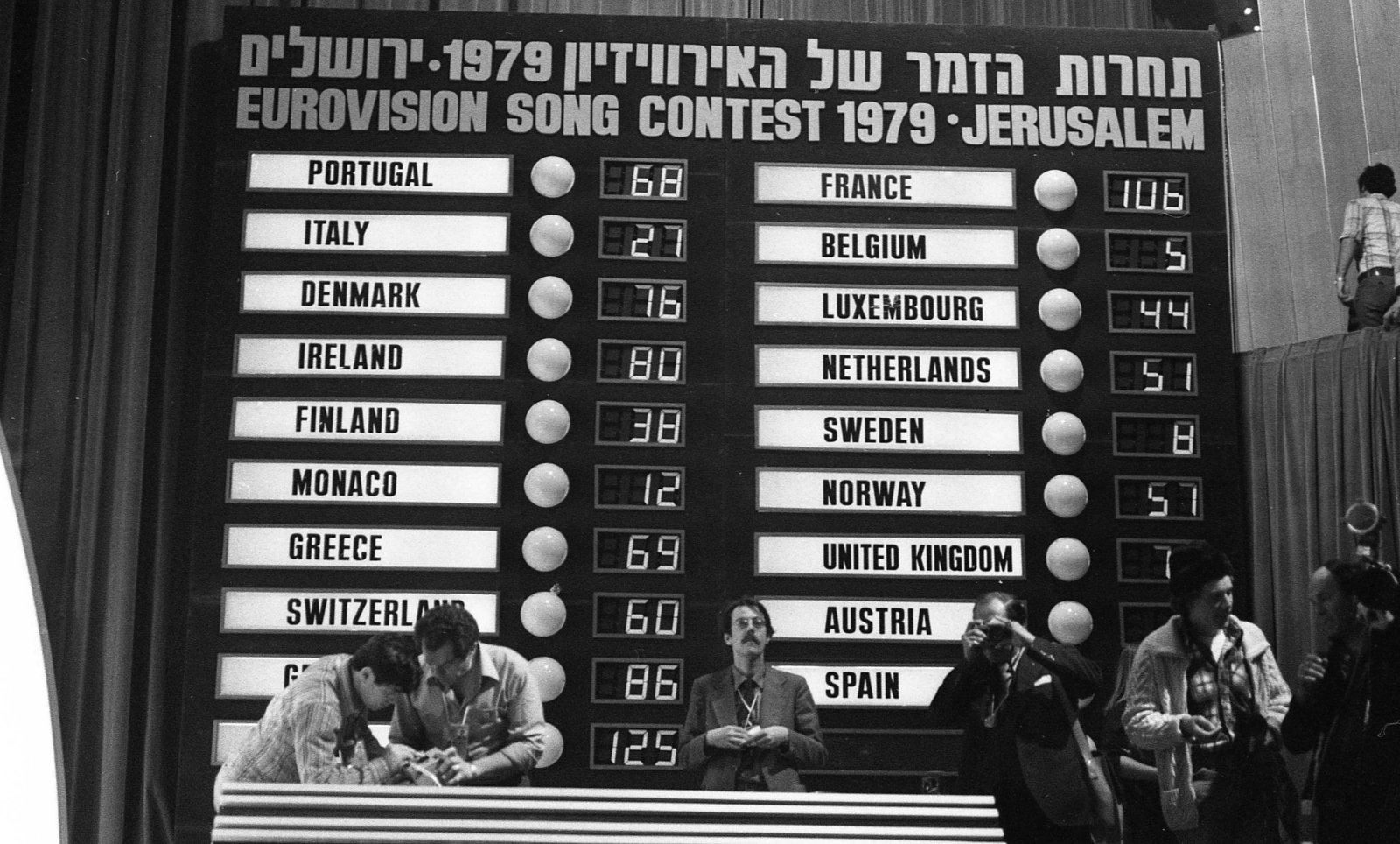
Despite having won for the second time in a row, IBA turned down the opportunity of hosting the contest again due to the expense and Israel bowed out of that competition altogether because Eurovision 1980 was scheduled for the eve of Memorial Day for IDF Fallen Soldiers, a national day of mourning. This unfortunate scheduling snafu happened again in 1984 and, again, Israel did not participate.
But in between, Israel won second place twice — in 1982 for Avi Toledano’s “Hora” and in 1983 for “Chai,” written by Toledano and performed by Ofra Haza.
An analysis conducted by musicologist Professor Derek Scott posits that Eurovision winning songs must be a solo or duo singing a happy, slightly nostalgic, song with a fast-paced, two-beat rhythm in a major key, and a mid-song key change, whose quirky lyrics are followed by a tuneful, memorable 16-bar refrain bring to mind either parties or love, and with opportunities for dramatic or comic gestures.
Israeli composers added in a few more features to their songs, like using a word – often starting with an “H” sound – or a simple, readily understood “international” word that, through repetition, would hatch an earworm to cheerfully burrow itself into the European psyche.
A new selection process
From 1973 to 1977, Israeli representatives to the Eurovision contest were selected by an internal IBA committee. In 1978 and 1979 – the years of Israel’s first and second Eurovision wins – the songs and performers were winners of the Israel Song Festival.
But in 1981, IBA instituted a pre-Eurovision contest modeled after the international one, in which regional committees made up of locals from around the country would phone in their votes. Which is how “Shir HaBatlanim,” a humorous Blues Brothers-style number performed by two comic actors, Natan Datner and Avi Kushnir, came to represent Israel at the 1987 Eurovision.
Then-Minister of Culture Yitzhak Navon threatened to resign if the satirical song were to represent Israel and Minister of Science & Development Gideon Patt also protested the choice, stating that the song – whose title translates as “Song of the Lazy Bums” – presented values that did not match the national ethos.
“Israel is a state of manual labor,” Patt said, “certainly not a state of idlers.” In the end, Navon did not fulfil his threat, and Patt called the duo to wish them well before the competition in Brussels.
It should be noted that even a joke song like “Shir HaBatlanim” followed the formula with a memorable chorus of “Hoppa Hoppa Huleh Huleh,” which may be why it managed to come in at eighth place.
The fall of the Berlin Wall in 1989 marked a period of confusion not only for Europe but for Eurovision as well. To accommodate the growing number of countries wishing to participate, in 1993 a pre-selection contest was instituted along with a relegation system barring the bottom seven countries from participating the following year.
That was the year Israel had its worst showing. Beloved song-leader Saraleh Sharon’s “Shiru” ranked a low 24th place out of 25. Israel therefore sat out the 1994 competition.
Enter Dana International
In the late 1990s, the LGBTQ community became more public about its long-standing affection for the contest.
Affection turned to ardor when Dana International became the third Israeli Eurovision winner. Her performance of “Diva” gave the pan-European audience the opportunity to see a transgender woman who was not only proud to be herself, but also proud to be Israeli.
In the wake of Dana International’s win, Israeli viewership of the contest reached an all-time high in 1999 with a 49% rating.
That year, boy band Eden took fifth place with “Yom Huledet,” sung in Hebrew but with “Happy birthday to you” in English as the infectious chorus.
Meanwhile, the Israeli song selection process had reverted, once again, to the IBA committee. In 2000, the committee selected Ping Pong, a motley crew made up of art students, punk rockers and journalists, whose members were not so much singers as provocateurs, and who had reportedly entered the contest as a joke.
The sexually suggestive lyrics of their song “Sameach” and their off-key singing, plus the fact that the group waved both Israeli and Syrian flags mid-performance – the group claimed they wished to encourage peace between the two countries – endeared them neither to the IBA, which threatened sanctions, nor to voters. Ping Pong came in 22nd out of 24. The Knesset Education Committee deemed the band “A disgrace to the State of Israel and Israeli culture.”
A decade and a half later, a lighthearted fictionalized version of the band’s story served as inspiration for the Israeli movie Cupcakes, directed by Ping Pong’s artistic director, Eytan Fox.
In 2004, to accommodate further expansion as more and more countries entered the contest, Eurovision introduced a semi-final. In 2008, Eurovision selection was extended to two semi-finals.
Things hit a new low in 2007 when Israeli band Tea Packs (Tippex) sang with no little irony about the Iranian nuclear threat to Israel. That song, “Push the Button,” didn’t make the cut, and Israel was not represented in that year’s Eurovision. Between 2011 and 2014, Israel entered a four-year losing streak during which time it failed to qualify for the final.
The road to Netta
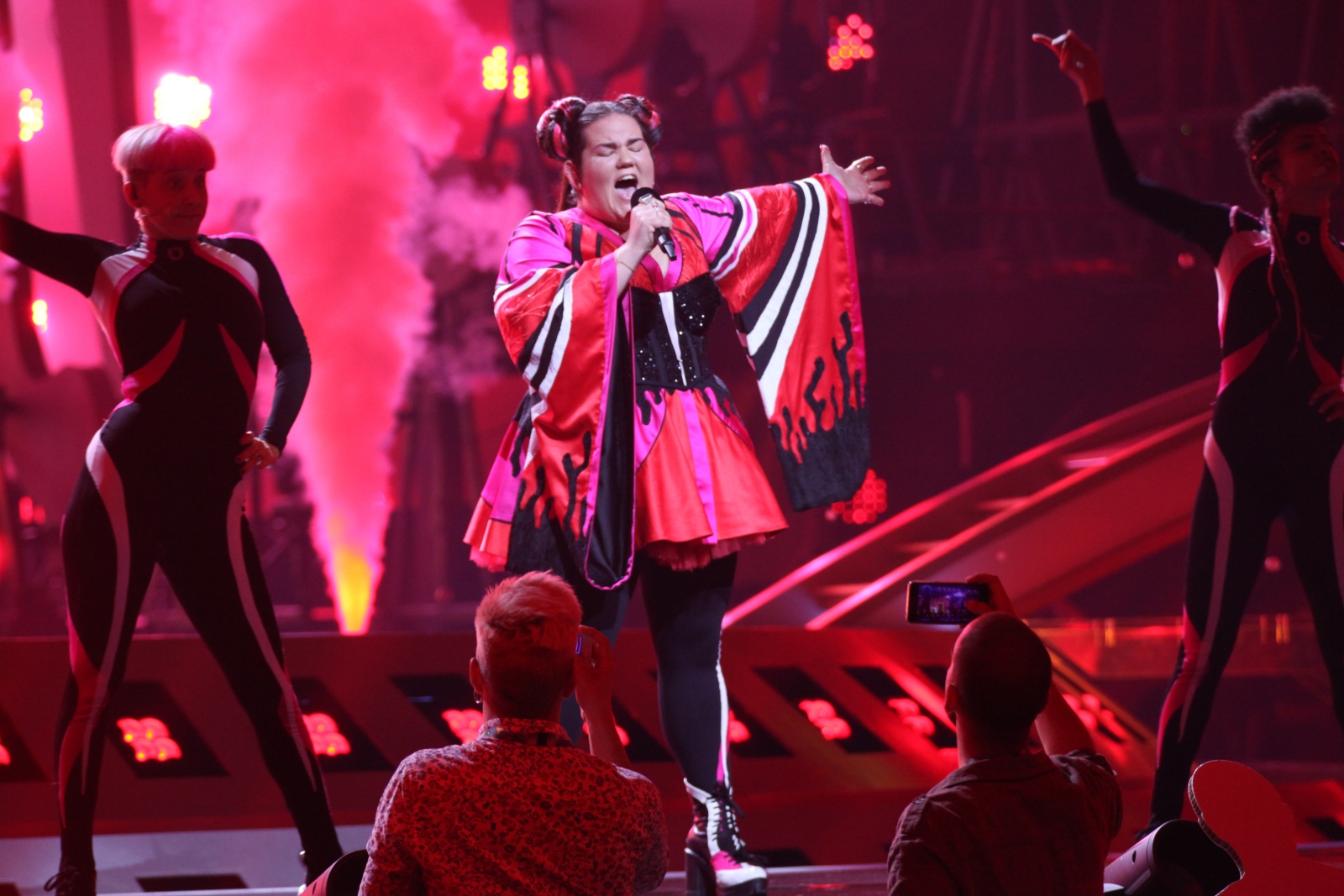
The turnaround came in 2015 with a new form of selection process, inspired by reality TV talent shows.
The judging panel for “The Next Eurovision Star” now comprised representatives from IBA, commercial broadcaster Keshet, and artistic management and production company Tedy Productions (which represents several of the most recent Eurovision winners).
2015 was also the year that songwriter Doron Medalie, who has already directed three prior Israeli entries, proved his hitmaking mettle with Nadav Guedj’s “Golden Boy,” which placed third in the Eurovision semi-finals and ninth in the final contest.
The following year, Medalie penned “Made of Stars,” performed by Hovi Star, which finished seventh in the semi-finals and 14th in the finals.
He then became the man with the golden touch when he composed (together with Stav Berger) the 2018 winner, “Toy,” sung by Netta Barzilai, the first-place song that brought Eurovision to Tel Aviv.
There was, of course, political fallout concerning the decision to host Eurovision in the country’s cultural capital and not in the official capital city, as is customary (and had been done three times before) but, according to contest organizers, Tel Aviv’s offer was the better one.
Representing Israel this year is Kobi Marimi whose song “Home” qualified automatically for the final competition.
According to Eurovision rules, all nations with the exceptions of the host country and the “Big 5” (France, Germany, Italy, Spain and the United Kingdom) are required to qualify from one of two semi-finals on May 14 and 16; the top 10 countries from each semi-final will progress to the final on May 18.
We can’t wait!




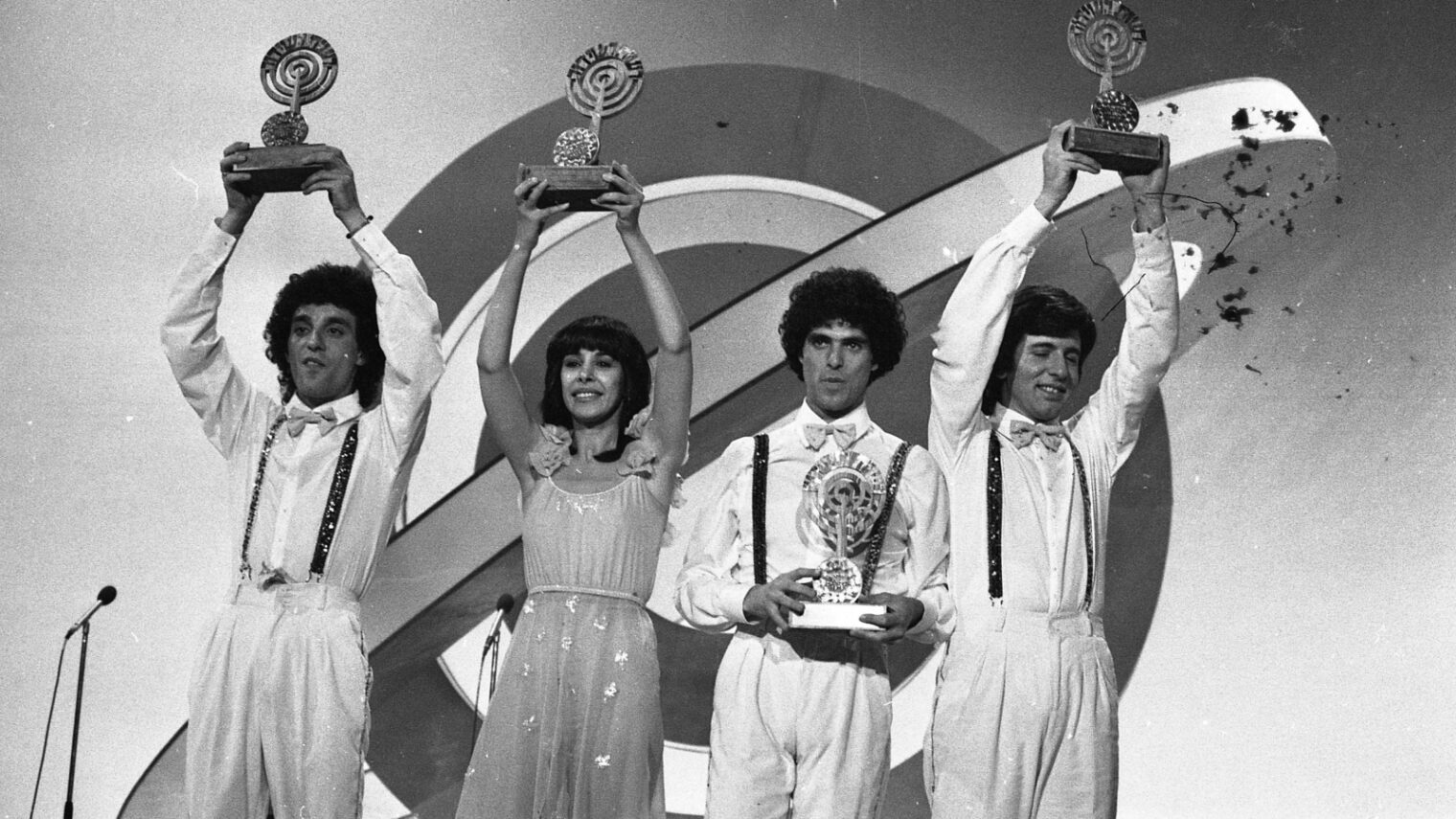










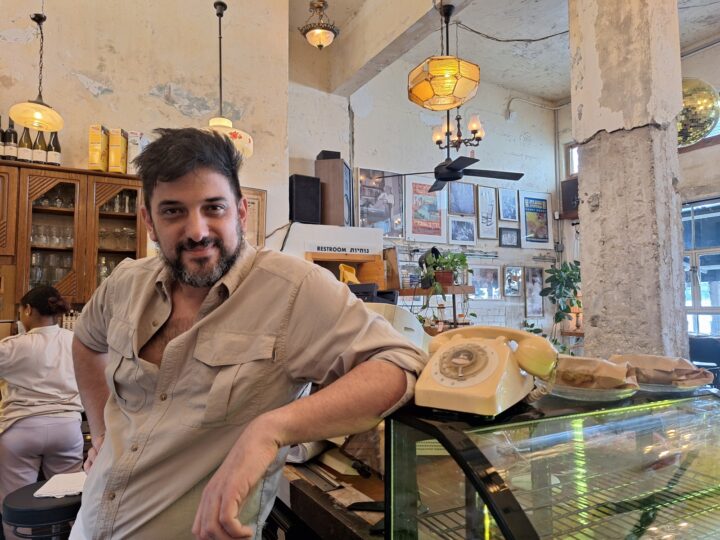
![Elections 1977 – Likud posters] In 1977, Menahem Begin led an election upset as Israel’s first non-Labor prime minister. Credit: GPO Elections 1977 – Likud posters] In 1977, Menahem Begin led an election upset as Israel’s first non-Labor prime minister. Credit: GPO](https://static.israel21c.org/www/uploads/2019/09/Elections_1977___Likud_posters_-_GPO-768x432.jpg)
